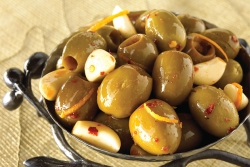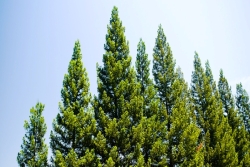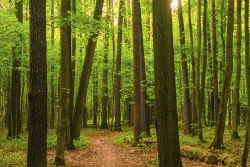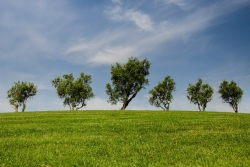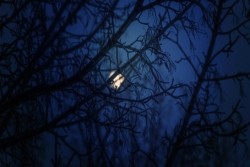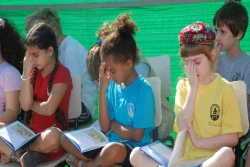Date-Fig Bars
This recipe is adapted from the King Arthur Flour Cookie Companion's recipe for Bakery Date Squares.
Marinated Olives
Tu BiShvat: Happy Birthday, You Beautiful Trees!
My commute to work every morning is not typical. I drive through the Roaring Fork Valley with majestic, now snow-covered, mountains on my left and my right. The sky is often a clear, bright blue, and the sun glimmers off the powdery snow that shifts in the wind. I am the cantor at the Aspen Jewish Congregation, and I certainly feel blessed to live and work in such a beautiful place. This quote from Isaiah is particularly fitting for this part of the country, as the people here are very in touch with the nature around them - often finding their spiritual center while skiing a run or hiking in the hills.
In Honor of Tu BiShvat, Some Facts About Trees
Tu BiShvat, the birthday of the trees (or the new year of the trees) is a minor Jewish holiday.
Every Tu BiShvat Is a Second Chance
Tu BiShvat: How Israel Has Planted New Seeds in the Jewish Soul
Why do we celebrate Tu BiShvat, the Jewish “New Year of the Trees,” in the middle of winter?
Tu BiShvat, called the "New Year of the Trees," falls at a seemingly incongruous time of year.
How to Plan a Tu BiSh'vat Seder
Everyone loves to participate in a Pesach seder. But did you know that there is an opportunity to celebrate a different seder about two months earlier?
Ode to the Moon of Shvat
Winter weighs on the soul of this author. She finds comfort, though, in the moon cycles and their symbols, laden with meaning, healing, comfort, and inspiration.
Planting “Trees” to Fulfill the Dream of Israel’s Founders
Tu BiShvat (Jewish Arbor Day) is the time of year when Israeli schoolchildren plant trees. Perhaps it’s no coincidence that a teacher instituted the tree-planting custom.

